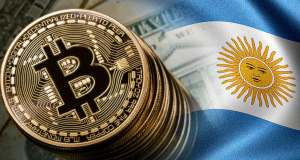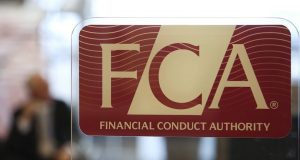Cryptocurrency scams have been such a plague on the market that many people have completely avoided the trading process as they are afraid of falling into a trap and losing their hard earned money for nothing.
Because of such a massive deterrent, crypto companies started branding strategies in a different way, to distinguish themselves from unreliable exchanges and service providers. Usually, these types of campaigns are only accessible by large companies due to costs involved, therefore it was easy to notice cheap vs expensive campaigns. It was all going well at first until Facebook decided to ban every single crypto or Blockchain related ad on their platform. But the question remains, did it actually work?
The Reasons for the Ban
It can't be said that the ban was unreasonable from Facebook. Absolutely no company in this world wants to be directly involved in a scam (unless they're a scam themselves). And for Facebook, having people use its platform for wrongdoing, was already a threat.
When reports started coming in about companies such as BitConnect, Facebook put its foot on the ground and introduced the complete ban.
It was weird to see only Facebook take the initiative, while platforms such as Instagram and Youtube continued to feature them. At that point, it is hard to blame these companies as during the Crypto Boom, these ads were worth a fortune. Furthermore, it was very hard to distinguish between reliable and scammy companies. Some platforms left it up to the users to make the decision, while forcing the ads to feature just a small disclaimer, warning about potential risks associated with cryptocurrency trading.
This quickly got out of hand, when even celebrities and famous influencers started promoting scammy companies, while sometimes even knowing about their true nature. Unfortunately, celebrities were probably the main method of spreading awareness to the general public about crypto investments. Amongst those involved, a scam crypto trading robot called Bitcoin Revolution, was utilizing false advertisement that involved Richard Branson and the Dragon's Den as endorses of the software. This marketing method was spread across social networks, and we could say that it was one of the biggest triggers of banning crypto advertisement on social media.
Seeing such a development, channels such as Google and Facebook, introduced indiscriminate bans on the marketing process of cryptocurrencies. Even if the company creating the ad was proven as trustworthy, the ad was declined and a prompt ban would follow.
Was the Ban Successful
Although Facebook supports one of the largest communities for a company to advertise to, it is not the only one. The main feature that was forgotten was the fact that almost all Facebook users were also users of various other Social Media channels, such as Twitter and Instagram.
Judging by the fact that most crypto investors get their info directly from the Tweets of CEO's of various exchanges, the susceptibility to scams was not put out of the equation. In fact, most of the scams happened during ICO operations, where companies would emit coins and then disappear without any trace. Even without the support of Facebook ads, they managed to find personal sponsorships with affiliate marketers and various blogs dedicated to cryptocurrencies.
The Ban Was Removed - Partially
The ban managed to survive just six months in motion. Seeing how the cryptocurrency market was growing without an end in sight, Facebook decided to partially reverse the ban. Every pre-approved company would get the chance to feature their ads on Facebook. However, there were still some rules.
Facebook prevented any type of ICO and Binary Options promotions, while just marketing campaigns for the company's services themselves were allowed, only if the company had proven its legitimacy.
Therefore, not every random Joe would be able to launch a campaign or disguise their scam and get away with it, no the industry is monitored very heavily.
A Contradiction on Its Way
News has already leaked that Facebook is planning to launch its very own cryptocurrency. So a question should be asked on this occasion. If Facebook promotes its own coin on its platform, is that considered as a violation of its own rules? Will it remove the ban completely?
No, it will not. As already mentioned, pre-approved companies are allowed to feature ads. And if Facebook can't approve itself, then there's something wrong with Zuckerberg. However, the question does apply to the ICO issue.
If Facebook decides to hold an ICO of their coin, then maybe we can see some unfair exceptions. But seeing as not every coin requires an ICO it may not happen. Furthermore, Facebook's coin will not be designed for trading, it will be designed for paying ad fees and various other expenses.
So, in summary, Facebook is highly unlikely to completely reverse its ban on cryptocurrency ads. The ICO ban will likely remain. But seeing how the market is headed for another bull rush, it may not be a problem for scammers to convince some websites to feature their banners. It's advised to tread carefully.
 You, Me, and BTC Your Liberty & Bitcoin Podcast
You, Me, and BTC Your Liberty & Bitcoin Podcast






